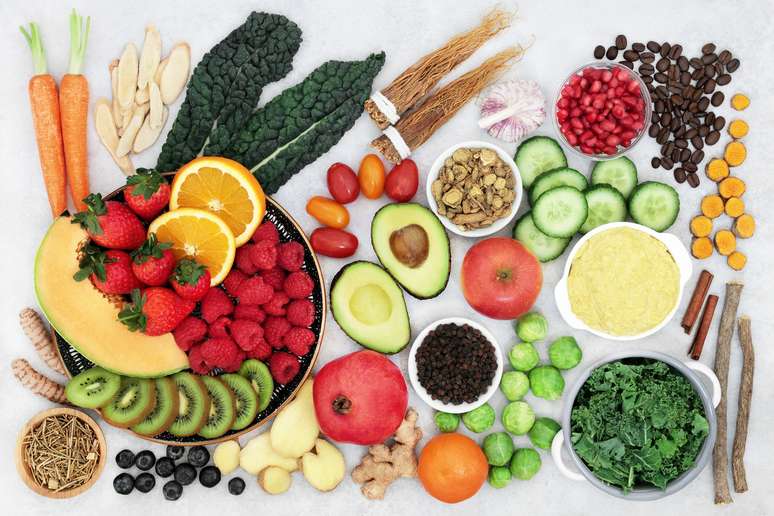The study highlights an association between the disease and a state of chronic inflammation
Chronic inflammation has been blamed as the cause of many chronic diseases, such as heart disease, diabetes, chronic lung disease, cancer, autoimmune diseases, and arthritis. Additionally, it is associated with cognitive decline and constipation, and may even accelerate aging.
Several factors can cause chronic inflammation, including excessive alcohol consumption, environmental factors, a poor-quality diet, stress, and insufficient or poor-quality sleep. Inflammation can also affect the gut microbiome, upsetting the delicate balance between beneficial and harmful bacteria.
Inflammation and colon cancer
We know there is a connection between inflammation and cancer, as well as between inflammation and gut health. But how does this relate specifically to colon cancer? After all, colorectal cancer is the fourth most common type of cancer in Brazil.
Researchers at the University of South Florida and the Tampa General Hospital Cancer Institute in the USA also wanted to explore this question and analyzed colon cancer tumors under the microscope. Here are the results of their study, recently published in the journal Intestine.
Using microscopes, the researchers examined 40 tumors from colon cancer patients and compared them to 40 normal tissue samples used as controls. The goal was to check for signs of inflammation in tumors compared to non-cancerous colon tissue.
Inflammatory fat
The researchers carried out an analysis of lipids, which include different types of fatty acids, such as natural oils, waxes and steroids. They can be beneficial, like those found in healthy fats (olive oil and omega-3), or harmful, like the excess omega-6 fatty acids from vegetable oils in ultra-processed foods. The latter tend to be inflammatory.
Ideally, our body maintains a balance between inflammatory lipids, which act when we are injured, and anti-inflammatory lipids, which help resolve inflammation and promote healing. Researchers have discovered a significant imbalance between these types of lipids in colon cancer tumors.
“We found that colorectal cancer tumor samples have significantly increased pro-inflammatory lipid mediators and few, if any, pro-resolving lipid mediators,” explains Timothy Yeatman, one of the study’s lead authors.
“This means that colorectal cancer tumors are chronically inflamed and that the microenvironment around the tumor cells is likely immunosuppressed, allowing them to grow and progress.”
Like a “wound that doesn’t heal”
Yeatman quotes the German physician Rudolf Virchow, who more than a century ago suggested that cancer is like a chronically inflamed wound that does not heal.
“The inflammation likely results from an excess of omega-6 lipids over omega-3s in our diet, a result of modern approaches to food production,” says Yeatman.
“We call these ultra-processed foods, rich in vegetable oils such as soybean oil. Although omega-6 fatty acids are considered essential, excessive intake of them in the diet can lead to a chronic inflammatory state. The end result is that the Colorectal cancer resembles a wound that will not heal.”
How to avoid intestinal inflammation?
An earlier study suggests that omega-6-rich plant oils don’t cause inflammation to the extent many believe, and may even reduce it. However, the current study indicates otherwise. So what’s happening?
Nutritionist Emily Lachtrupp explains: “When it comes to omega-6 fatty acids, it’s important to consider the source. The problem isn’t necessarily with omega-6 fatty acids themselves, but that most of us consume them in large quantities starting with ultra-processed foods, which are often less nutritious and can increase inflammation, almonds and pumpkin seeds, for example, are rich sources of omega-6 nutrients that can be part of a healthy routine. Balance is fundamental Most of us consume too much omega-6 and not enough omega-3s. Reducing consumption of processed foods and prioritizing foods rich in omega-3s, such as salmon and tuna, can help.”
Yeatman also suggests the challenge of eating as naturally as possible. “These ‘other ingredients’ in ultra-processed foods often include preservatives, colors and flavor additives. We still don’t fully understand their impact on the gut microbiome, which can directly regulate lipids and immunity in the gut.”
Additionally, there are anti-inflammatory foods that can be incorporated into your plate daily. Whether it’s adding salmon for dinner, avocado for breakfast, or a handful of nuts as a snack, opting for foods high in healthy fats (omega-3) or rich in antioxidants helps create balanced, colorful meals throughout the week, which it is always a benefit for your health.
Source: Eating Well
Source: Terra
Ben Stock is a lifestyle journalist and author at Gossipify. He writes about topics such as health, wellness, travel, food and home decor. He provides practical advice and inspiration to improve well-being, keeps readers up to date with latest lifestyle news and trends, known for his engaging writing style, in-depth analysis and unique perspectives.







![Tomorrow we belong to: What awaits you in the 2054 episode of Thursday on October 16, 2025 [SPOILERS] Tomorrow we belong to: What awaits you in the 2054 episode of Thursday on October 16, 2025 [SPOILERS]](https://fr.web.img6.acsta.net/img/3f/3b/3f3b56983d580fbe5136143378b45a29.jpg)
